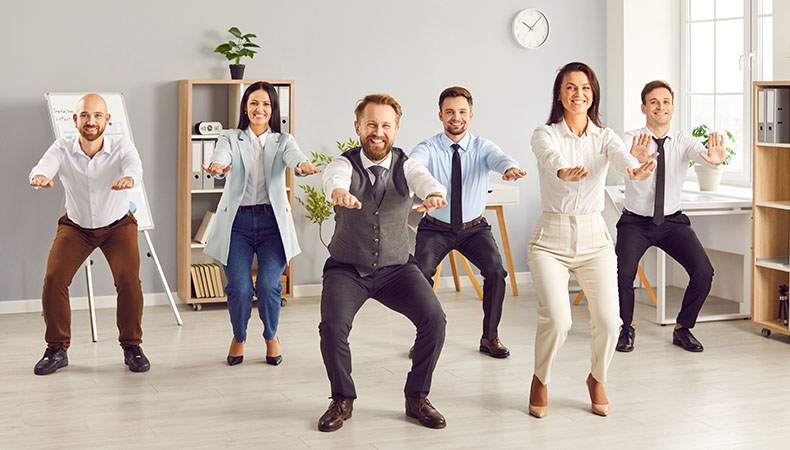The power of movement to support employees' mental health
The science is clear: exercise can make us happier and perform better at work.
I can’t stress enough how vital it is for you to know this and, more importantly, to act on it.
As I’m sure you’ve heard, we are living through a mental health crisis. Today, mental health is the leading reason why people seek help from their GP.
There is a positive side to this. Stigma around mental ill health is breaking down. People are more open to seeking help.
There are sure to be people in your organisation who suffer in silence. This will impact on their productivity and your bottom line.
In my research, for over 20 years, I’ve been asking how we should support mental health through physical activity. I’ve worked with including the World Health Organisation and more recently GoJoe, the employee health and fitness app.
Here are some key takeaways that can make a difference for you.
Physical activity can help prevent depression
I was part of research which analysed over 260,000 people across every continent, over 7.5 years.
We found that those who were more active in their daily life were around 15% less likely to develop depression in the future, compared to those who were least active.
We saw around a 30% reduction in the risk of future depression for people who engaged in the recommended guidelines: around 150 minutes of exercise, spread over a week.
Mental health benefits increased up to 300 minutes of movement a week, before plateauing.
The best combination of exercise for mental health
A study I was involved in looked at fitness levels of workers aged around 40.
We found those who had higher cardio and respiratory fitness (good heart and lung strength) and muscle strength were less likely to develop anxiety and depression in the future.
So, working on your heart, lungs and muscles is best. There are many ways to achieve this – from running and weight training, to yoga and pilates.
Do whatever you enjoy that raises your heart rate, speeds breathing and adds strength.
How exercise changes our brains for the better
Our research consistently shows that aerobic exercise and resistance training improve brain function in terms of concentration, performance, happiness and contentment.
You’ll think clearer, plan better and remember more.
For example, heart-raising exercise over eight weeks increases the volume of the hippocampus.
This is the part of our brain responsible for memory and emotional processing. It’s reduced in conditions such as depression.
Exercise can also stimulate new nerve cells and connections.
It doesn’t take a lot to make a difference
I was part of a project which developed facial recognition software to capture expressed emotions.
We scanned over 1,000 people before and after physical activity. We showed that just 15 minutes and 9 seconds of movement is enough to provide a meaningful uplift in mental health.
Five top tips for more movement at work
- You don’t need to move for long or do anything complex to get a mental health benefit. Start with 5 or 10 minutes a day and build up from there.
- Find a form of movement you enjoy. You’re more likely to stick with it and do it for longer. The type of exercise is less important than doing it consistently and building intensity over time.
- The best exercise is whatever you can do consistently. You’ll give your mind long-term protection. And guard your body against the health risks that come with ageing.
- If you can, find people to exercise with. Social support gives you an extra wellbeing boost. Psycho-social benefits of movement include increased self-esteem and self-efficacy.
- If finding time is hard, there are hacks. For example, instead of booking a room, have a ‘walking meeting’, preferably in the open air.
In a nutshell: get your workplace moving more and everyone will feel the benefits.
To learn more about GoJoe visit GoJoe.com or book a demo.
Supplied by REBA Associate Member, GoJoe
Using the power of health and fitness, GoJoe improves wellbeing, drives engagement and culture and saves organisations money while they do it. Plus, they make it fun, as exercise should be.








